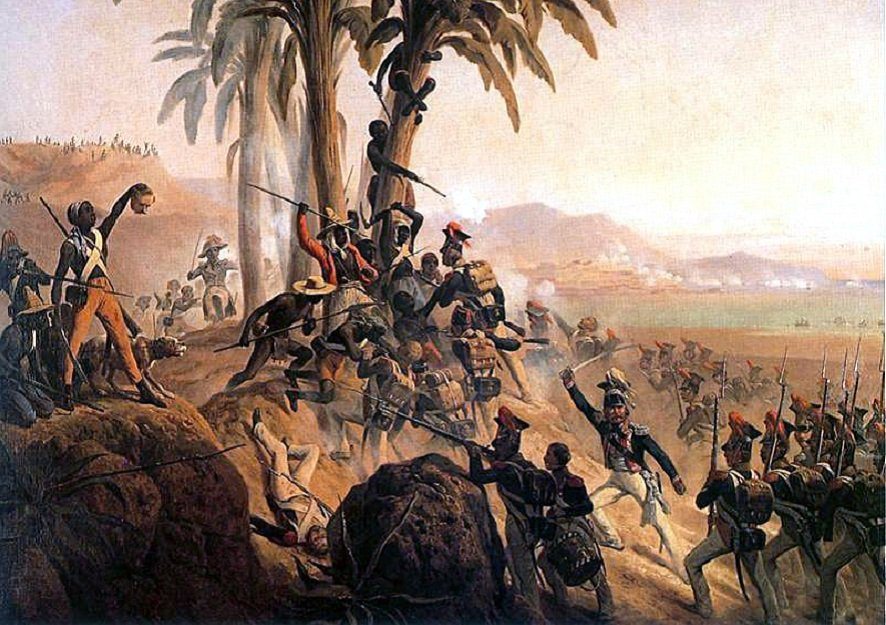
Haitian Revolution began (August 21, 1791)
This date in August marked the beginning of an 11-year conflict between the enslaved Africans on the Caribbean island formerly known as St. Domingue. The Haitians’ thirst for freedom had been ignited by France’s publication of the Declaration of the Rights of Man, which the French never intended to apply to their slaves. They also underestimated the strength and determination of the Haitian fighting force. Cultivation of sugar had transformed the island into France’s most valuable colony and indeed, the most wealth-generating colony of its time on the whole planet. The Haitian fighters destroyed many sugar plantations in their quest to be free. Two years after the fighting began (in August 1793), France abolished slavery in Haiti and within another decade, Haiti became the first Independent Black Republic in modern times.
Fallout from the war included the transfer of a vast amount of land from the French to the Americans in the “Louisiana Purchase.” Many black and mixed-race Haitians and French planters fled the island and took refuge in the colony of Louisiana, which dramatically influenced the culture there.
Haiti paid the price literally, for its freedom, as France extorted $25 million Francs (worth $90 million Francs in today’s currency) from the new republic as a guarantee that it would not wage eternal military conflict against the new republic. This type of economic warfare is similar to France’s financial domination of its former West African countries through the “French colonial tax”, possession of their national treasuries and foreign reserves in French banks, and control of their currency, the CFA.









